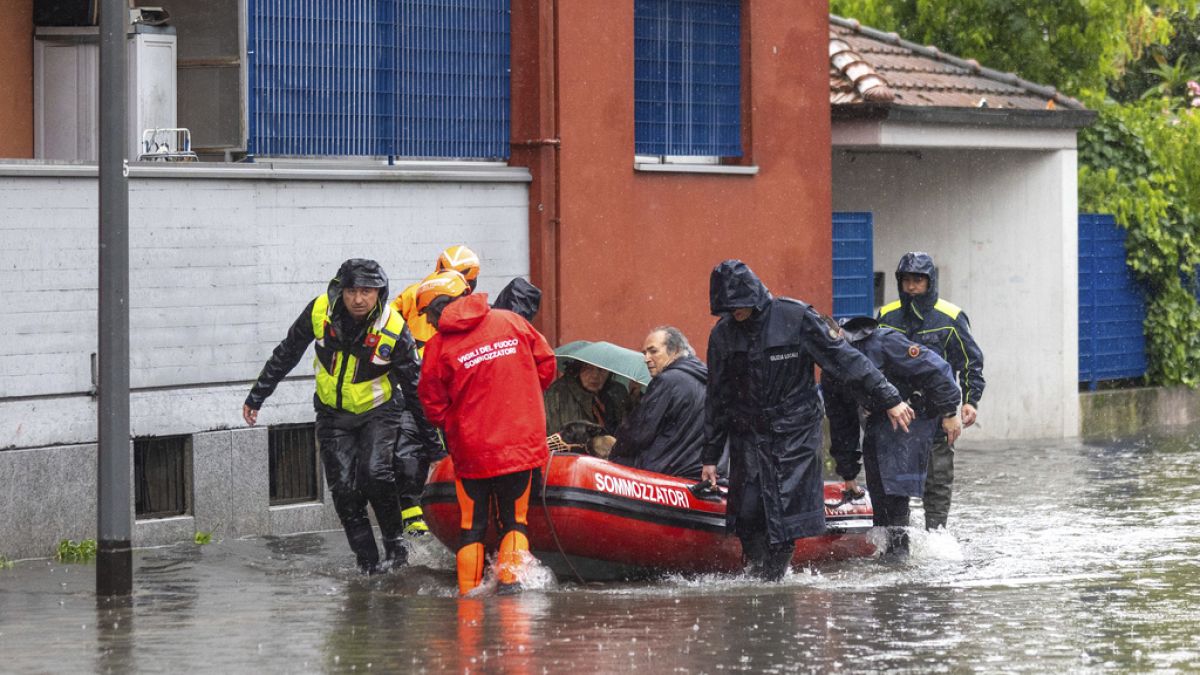Yesterday’s heavy rainfall caused severe flooding in several areas of northern Italy, including major cities like Milan, Varese, and Cremona. The downpour led to overflowing rivers and streets turning into rivers, affecting both residents and travelers in the region. Firefighters were quick to respond, using dinghy boats to evacuate people stranded by the floods. The situation prompted travel disruptions, with services being severely affected by the adverse weather conditions.
The aftermath of the heavy rain in northern Italy has left many areas struggling to cope with the aftermath of the flooding. In Milan, Varese, and Cremona, the overflowing rivers and flooded streets have caused chaos for both residents and travelers alike. The scenes of firefighters using dinghy boats to rescue people trapped by the rising waters are a stark reminder of the power of nature and the importance of a swift emergency response. The impact of the floods on travel services in the region has been significant, with disruptions affecting those trying to navigate the affected areas.
The heavy rainfall that led to the flooding in northern Italy has highlighted the vulnerability of the region to extreme weather events. The scenes of inundated streets and overflowing rivers serve as a sobering reminder of the need for preparedness and resilience in the face of such natural disasters. The quick response of over 100 firefighters using dinghy boats to evacuate people in the affected areas is a testament to the importance of emergency services in times of crisis. As the region begins to recover from the floods, it is clear that efforts must be made to better protect communities from the impacts of climate change.
In the wake of the flooding in northern Italy, the focus now turns to the recovery efforts in the affected areas. The cleanup and restoration process will be a challenging and time-consuming task, requiring coordination between local authorities, emergency services, and community members. The impact of the floods on travel services in the region will also need to be addressed, with disruptions likely to continue as the cleanup efforts get underway. As the communities in Milan, Varese, and Cremona come together to rebuild and recover, the importance of resilience and solidarity in the face of adversity becomes evident.
The heavy rainfall that led to the flooding in northern Italy serves as a reminder of the urgent need for climate action. The increasing frequency and intensity of extreme weather events is a clear indicator of the changing climate, and the vulnerability of communities to its impacts. As the region grapples with the aftermath of the floods, there is a pressing need for investment in climate adaptation and mitigation measures to better prepare for future disasters. The floods in Milan, Varese, and Cremona underscore the importance of building resilience and sustainability into our infrastructure and communities to protect against the growing threat of climate change.
As the cleanup and recovery efforts continue in the wake of the flooding in northern Italy, the need for solidarity and support from both local and international partners becomes crucial. The impact of the floods on communities, infrastructure, and the economy will require a concerted effort to rebuild and restore what has been lost. The scenes of firefighters using dinghy boats to rescue people from the rising waters serve as a poignant reminder of the importance of coming together in times of crisis. As the region looks to the future, the lessons learned from this disaster must be heeded to better prepare for the challenges that climate change will bring.











